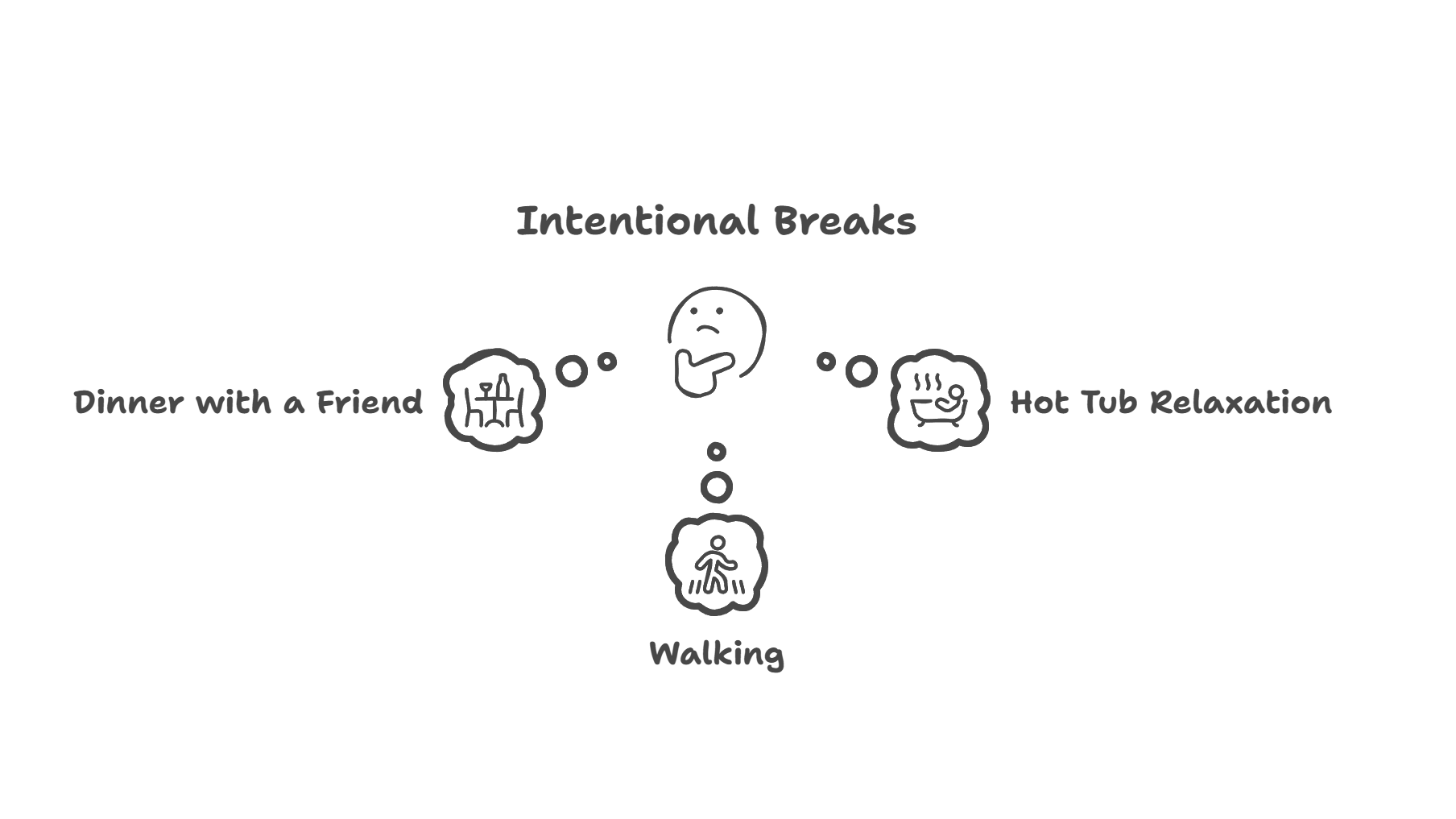Every writer has their own process of writing, but if there’s one thing that holds most of us back, it’s overthinking. We get caught up in brainstorming, worrying about our writing style, and questioning whether our book idea is good enough.
I’ve written about perfectionism in writing, and the art of self-editing. I’ve coached authors through imposter syndrome and I’ve waxed poetic about how I don’t think writers’ block really exists. That’s not what I’m doing in this article.
In this article, I’m giving you an inside look into how I wrote 11,000 words in one day in the hopes that my strategies might inspire or help you. Your book won’t write itself and at the end of the day, the process of writing comes down to one simple thing: actually writing.
The Problem: Overthinking Instead of Writing

Like many fiction writers and nonfiction authors alike, I’ve fallen into the trap of thinking about writing more than actually doing it. I arrange and rearrange the table of contents instead of trusting the past version of myself that wrote the darn thing. I research and then do more research and then I have a pile of peer-reviewed articles that have fascinating conclusions but still no draft.
I try to pluck the perfect first sentence out of thin air, but then I notice the cobwebs on my office ceiling, and suddenly I need to clean more than I need to write. When I need to write, suddenly my house gets cleaned like nobody’s business. Laundry gets folded, dishes get washed, and my social media gets more attention than my rough draft.
Solution: Change How You Approach Your Book
Change your space to change your mode of operation. I like this cartoon by Digitally Baffled to explain how my brain works, and the space I’m trying to create to change the mode my brain is in. I need to go from distracted, overthinking procrastination mode to writing mode, the mode that makes the doing happen.
Because I live in a small-ish house with loads of other humans and a dog, writing at home (especially when other people are here) is difficult. And, during my regular work hours, I’m working on content for my clients, or building my new non-profit. So, for this book project I’ve committed to writing sprints.
In my first writing sprint I added 11,000 words to my draft of 20,000. In my second, I wrote an additional 10,000 and made tons of edits. The book is nearly complete with just two chapters left to add for this round, and I have interviews scheduled for them both.
Step-By-Step: How I Got 11,000 Words Done
Plan for Success
When I write fiction, I don’t start with a plan or an outline. I get to know my characters really well and let them tell the story. I’m what’s called a pantser in the fiction realm. For nonfiction, though, a plan is necessary.
Before I start a writing marathon like the one I’m about to walk you through, I plan what I’m going to accomplish. This means I know what chapters need to be written, and I have a rough idea of what will be in each chapter. Then, when writing time starts, I check the list of things to do and pick one to tackle. It doesn’t matter if I write chapter 5 before chapter 1, as long as they all get written eventually. Download the book writing starter kit for access to my planning documents.
Separate Thinking From Doing
The version of me that thinks about my books is a different version than the one who writes them. This is true whether I’m writing for myself or a client. When I’m thinking about a book, it is a logical process that looks something like a colorful spreadsheet. In fact, Josh Bernoff, author of the Build a Better Business book, recommends actually organizing your book in a spreadsheet at first so you have concrete evidence of the value of your thinking time. I like the recommendation and am working to create one for future projects based on the Google Doc series I currently use.
The version of me who leaves thinking behind and focuses on the doing (the writing) is the same version of me that spun in circles on the cottage lawn at Lake Huron during my childhood summers. Hands smeared with sand, marker, and lake water, wind in my hair, and bare feet padding the crab grass. She is not logical, otherwise she’d wash her hands, put on some shoes and do something productive. Writing, for me, is play.
Writing might not feel like play to you, but it is still a creative process instead of a logical one like planning. Plan first, but then, when you decide to write, let the planner take a seat and trust that they’ve crafted a solid plan for your first draft. Trust future you to handle the edits.
Creating a Focused Writing Space
Writing at home comes with distractions. There’s always something to clean, someone to talk to, or errands to run. That’s why I left. I needed a space where my entire book was my only priority.
I found a quiet location away from my everyday life, somewhere I could focus entirely on my writing goals. For me, using hotel points to book a hotel room somewhere I can walk serves the purpose. For some, that might be a coffee shop; for others, a rented cabin or a friend’s house. I took a full day, you might do an hour or three. The key is to step away from the usual distractions and create an environment where writing is the only task.
Writing in Focused Sprints
I didn’t sit down and force myself to write for 26 hours straight. Instead, I used writing sessions broken up into sprints. I would write intensely for a set period (usually 45 minutes to an hour) and then take a break. This method helped me maintain momentum without burning out. The trick is to never interrupt flow. Once you decide to write, stop thinking about writing and just decide you are the person who writes easily right now.
I did not set a word count goal for each sprint. Instead of aiming for perfection, I just got words on the page. A first book, a first chapter, even an entire book starts with just putting words down. Editing and improving come later.
Taking Intentional Breaks

I knew that sitting and forcing myself to write endlessly wasn’t sustainable. That’s why I planned breaks strategically.
- Dinner with a friend: Taking time to talk, eat, and step away from the writing process refreshed my mind.
- Sitting in a hot tub: This helped me relax, clear my thoughts, and return to writing with a fresh perspective.
- Going for walks: Some of my best narrative pieces and ideas for additional chapters came to me while walking. A change in environment and movement can be incredibly beneficial.
Writing time isn’t just about sitting at a desk. Breaks that allow for creative thinking can be just as important as actual writing.
The Mental Challenges of Writing in a Marathon Session
Writing for an extended period comes with emotional ups and downs. At times, the words flow effortlessly; at others, self-doubt creeps in. I questioned whether my writing was any good, whether my book idea was worth pursuing, and if I could maintain this momentum.
To push through self-doubt, I reminded myself that a rough draft is just that—rough. No first book, first novel, or first chapter is perfect. The key was to keep going. When I felt exhausted, I leaned into small rewards: a hot tub break, a quick chat with a friend, or a moment to step outside. Recognizing when to push forward and when to step away made all the difference.
Tools and Resources That Helped
Having the right tools made my writing sessions more productive. I used Google Docs to write my book, the notes app on my phone to record random thoughts popping into my head while walking or taking a break, and Chat GPT to help me outline chapters and avoid staring at a blank page.
To stay focused, I set timers for writing sprints using the Pomodoro technique. Noise-canceling headphones and a writing playlist helped me stay in the zone. Tracking my word count at the end of each sprint kept me motivated—seeing tangible progress reinforced my commitment to finishing my book.
The Power of Momentum in Writing
Writing large chunks at once helped with consistency. Instead of losing track of points or narrative development over weeks or months, I was able to stay immersed in my story. The pieces I wrote slowly over many months now need much more revision than the parts written during my sprint.
The more I wrote, the easier it became. The fear of a blank page disappeared, and I built a habit of productive writing sessions. Momentum is powerful—once you get into the flow, finishing an entire book feels much more achievable.
Before you Stop, Plan Your Next Session
At the end of my writing marathon, I took myself out for lunch and planned the next steps for my book. I tracked what I’d finished, wrote down areas I needed to research further before my next writing session, and made a plan for what to write next. My next writing marathon yielded a ton of research added, three more chapters, and a pile of revision to existing chapters totaling just over 10,000 words. Taking the time to plan before returning to your “normal life” means you’ll be well prepared to dive into your next writing block.
What I’d Do Differently Next Time
Looking back, there are a few things I would adjust for my next writing retreat.
Plan my breaks better. While I took breaks, some were longer than necessary. Setting a timer for breaks would keep me from losing focus.
Outline more in advance. While I had a general idea of where my book was going, a more detailed outline would have helped me avoid moments of uncertainty.
Refine my writing space. Next time, I might choose a location with better lighting or more comfortable seating to make long writing sessions even smoother.
How to Replicate This Strategy in Your Own Life
You don’t need 26 hours away from home to make major progress. Here’s how you can apply this to your own writing journey:
Set dedicated writing time. Whether it’s an entire weekend or just a few hours, block off time specifically for writing.
Remove distractions. Step away from chores, social media, and daily responsibilities. If you can, leave your house.
Make your writing space comfortable for you. If you need snacks, drinks, and music, gather them before you start so you won’t have to break your concentration to get what you need. If silence is what you need, make sure your space has that.
Use writing sprints. Set a timer, write without stopping, and take intentional breaks to recharge.
Track your word count. Seeing progress will keep you motivated.
Embrace imperfection. Your rough draft won’t be perfect, and that’s okay. Just get the words down.
Stop Thinking, Start Writing
Whether you’re working on your first novel, a nonfiction book, or even a short story, the best way to reach the finish line is to write. Literary agents, self-publishing success, and becoming a bestselling author all start with one thing: words on the page.
Thinking about writing won’t get your book finished—actually writing will. So stop worrying about the perfect beginning, the right process, or the best writing space. Find a way to make writing your priority, and the words will come.
Now, go write your book.
If you want help setting yourself up for writing success, book a VIP call with me to chat about your project.


